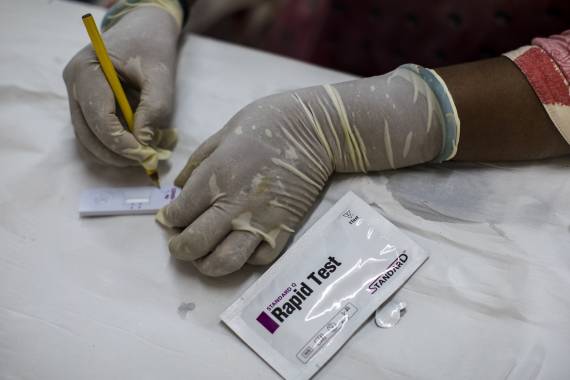Solace for dropped Hwange boy, MRI scan results can be inconclusive but it’s a rarity: Zifa chief medical officer

Sikhumbuzo Moyo, Acting Sports Editor
ZIFA chief medical officer Edward Chagonda has confirmed that results of the Magnetic Resonance Imaging (MR1) can sometimes be inconclusive, raising a possibility that Hwange’s Claivert Tshuma, who was dropped from the Under-17 Cosafa squad, could have been a victim of that probability.
Chagonda though said such an occurrence was a rarity with its possibility at less than one percent.
While Tshuma was among six players that were dropped after the MRI scan results, it’s his parents who have openly challenged those results, claiming their son was not overaged as he was born on 21 January, 2004 at Victoria Falls Hospital. He did his primary education at Mabinga Primary School in Cinderella suburb in the coal mining town of Hwange.
A livid Tshuma’s mother, Sylivia Maphosa, told Chronicle Sport that she didn’t believe what ‘the machine claimed’ as she knew when she gave birth to her son.
She said to be told that his son was over 17 years was just unbelievable and demanded to see the results as she strongly suspects that someone switched the results so as to accommodate their own boys. She also did not have kind words for the assistant coach, John Nyikadzino whom she claims harassed her son, calling him ‘all sorts of names’ something which, according to her, traumatised his son a lot, on top of being dropped from the national team where he was a regular.
She said given resources, she would fight to clear her son’s image and prove that all this was done to accommodate some people’s boys.
“Being dropped in the national team is part of the game, if other players are better than you there is nothing the coaches can do but my son was not dropped because of talent.”
Yesterday, Chagonda, a respected figure in the game, with years of experience seemed to concur with the family on the conclusiveness of the results although he said it’s a rare occurrence, putting it at just one percent.
“It’s rare but it happens, unfortunately for now that is what we are using but like I said, it’s very rare,” said Chagonda.
Meanwhile, there has been calls for Tshuma to undergo a second MRI scan whose minimum costs is at US$500.








Comments